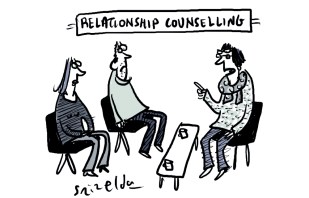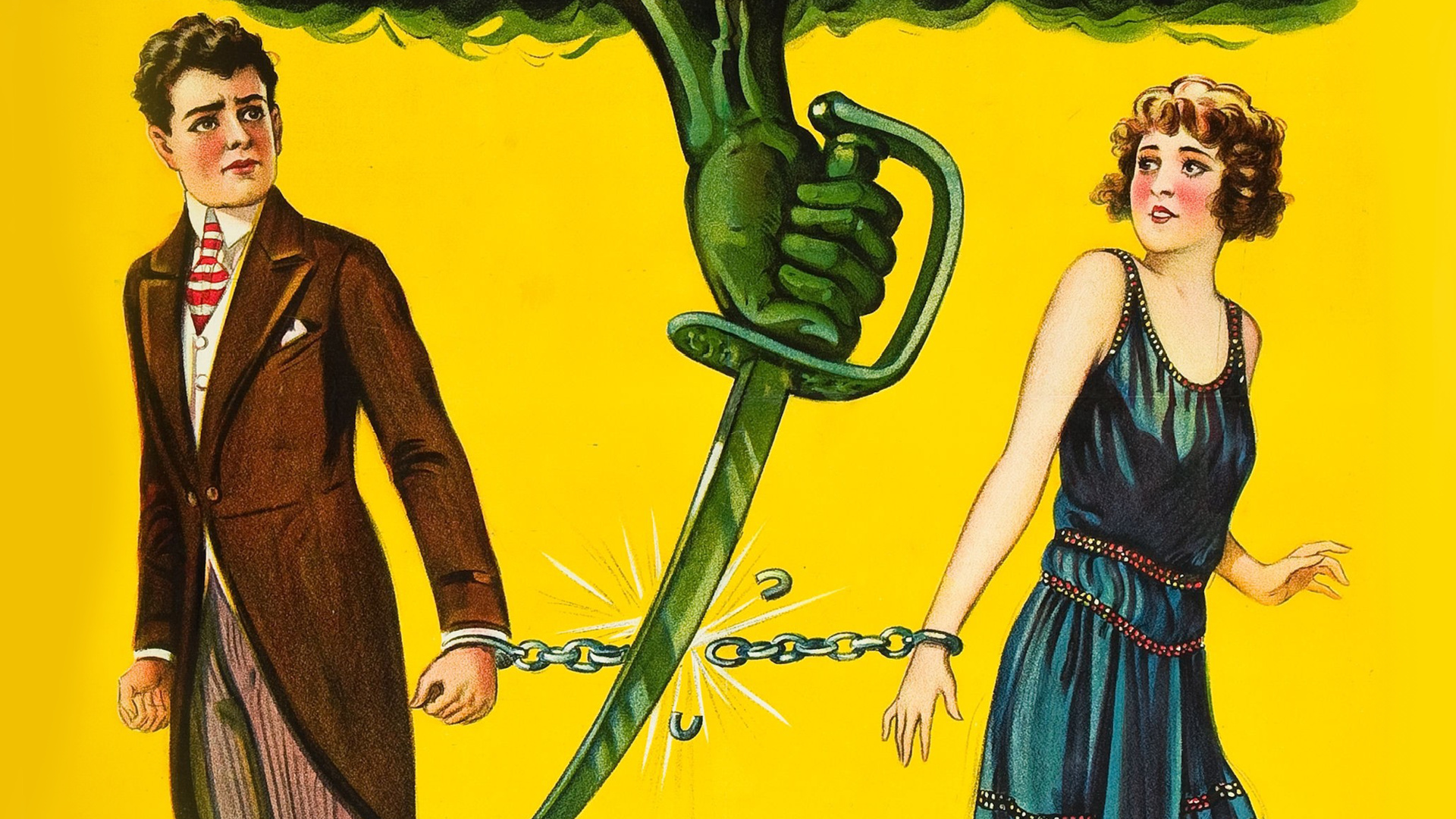On Woman’s Hour recently, Anita Rani and her guests set out to celebrate the positive sides of a woman’s midlife. Forget the crisis: your forties and fifties could instead be a time for change, a refresh. You could take up a new hobby, they said, or a new exercise regime. Or you could get a divorce!
What’s alarming is that this sort of discussion isn’t unusual. I regularly spot articles in newspapers and on social media that talk about divorce as if it’s just the latest wellness trend. They usually go like this: a middle-aged woman walks out on a long marriage and insists that she’s never been happier, that she’s free, that she’s ‘starting a new chapter’ in her life. She then demands through a rictus grin that you be happy for her. Here’s one headline: ‘I love my husband. That’s why I’m divorcing him.’ Is that supposed to make everyone feel better?
In the past decade, 62 per cent of divorces in England and Wales were initiated by women. That’s not to say women are to blame for marital breakdown. After all, most affairs are instigated by men, although a study done in the past ten years shows that adultery accounts for only 14 per cent of divorces in the UK. The past decade has also seen a sharp rise in older women ending marriages of 20 years or more. The number of women over 65 seeking a divorce in the US has tripled since 1990. What’s pushing these women out of their marriages?
Some of the reasons women give in the media are offensively trivial. Women are seeking a divorce, says Sam Baker for the Daily Mail, because ‘they’re done being the one who makes all the effort: who remembers all the birthdays; who works out what to have for tea’. Another woman traces her marital breakdown back to a fight with her husband over the choice of kitchen island. Postnatal depression and the fallout of lockdown are the real reasons, she says, but the argument over the bumblebee-yellow island was the final nail in the coffin. A writer in the Daily Telegraph recently cited a ‘disagreement over laundry’ as the lightbulb moment when she knew her marriage was over.
Women congratulate each other for ‘speaking out’ and fighting the stigma. The columnist Stacey Duguid says she accidentally became a ‘divorce influencer’ because her long, detailed posts about her divorce became so popular on Instagram. She now counts her divorce coach and her lawyer as close friends.
Divorce is presented as a glamorous life choice. One divorcee boasts that she can ‘go out with girlfriends on a whim, book impulsive weekends away… I am answerable to no one’. These sound like teenage ambitions; perhaps that’s the point. These women want to feel young again. Nobody seems to mention how their children might feel.
Social media has a lot to answer for. ‘Divorce parties’ (yes, that’s a trend too) are now popular. A divorce party is a time for cake, for champagne, for divorce warriors to chant: ‘I do. I did. I’m done.’ Breaking up a marriage is yet another cause for forced celebration. Women must ‘reclaim the narrative’ – not, God forbid, be sad about the fact their marital love was finite.
These women promote the idea that their choice to break up their family is a positive one
Most of the divorce influencers I’ve come across do admit to wondering whether they made the right choice. But the urge to deflect the tragedy of divorce is strong; the alternative is facing the reality that you have destroyed your family life, which is bleak.
Instead, these women promote the idea that their choice to break up the family is a positive one. What happens when their children hear their mother say that marriage and childrearing is something from which she needed to be saved? Perhaps they haven’t thought about that, or worse, have convinced themselves that telling their truth is more important than their children’s and ex’s feelings. ‘Yes, we’re getting a divorce,’ runs a headline in the Times. ‘And no, we’re not sad.’ I bet the kids are. ‘It’s not a failed marriage,’ the article continues, ‘it’s a successful divorce.’ This idea of a ‘successful divorce’ is one promoted by a legal firm called Amicable, which has been advertising its services on the London Underground. The adverts suggest that divorce doesn’t have to be a miserable process. ‘We make divorce kinder and simpler,’ they claim. ‘Tell your daughter about Amicable.’
There’s no such thing as a kind divorce, though, and any attempt to spin divorce positively – ‘Of course Mummy and Daddy still love each other! And now you’ll even get two Christmases!’ – is gaslighting. The breakdown of a marriage is a time for grief. Children know that better than anyone.

There are, of course, good reasons to divorce. No sane person would argue that a woman in an abusive relationship should stick around. But serious issues such as abuse are not the ones normally cited in the growing trend of positive divorce stories. The common theme in these stories is resentment over domestic duties and unfulfilled individual potential.
But the alternative is not always as wonderful as it is presented. Petronella Wyatt, former deputy editor of this magazine, wrote recently that prioritising her career and financial independence over relationships has left her childless, single and depressed. Without family, she says, there is a ‘vacuum’ in our lives. Millennial women like me, meanwhile, were also told never to rely on a man for financial support or settle for being a housewife. After I had children, I realised how delusional this expectation is. Most women do have to rely on a man to help raise kids. How else can a household function?
Marriage is the foundation of a family, a partnership formed to raise children. Getting married and having children fundamentally entails sacrificing the self for the whole. But that’s not a bad thing. Sure, you may have to plan the meals for the next 18 years, but that is the price you pay for having children. It’s not the end of the world. But do you know what is the end of the world when you’re a child? Your parents divorcing.








Comments